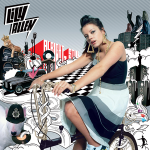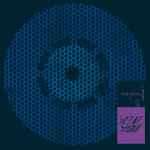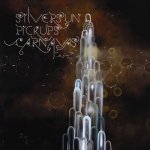I tend to be modest verging on self-deprecating when it comes to my talents, but there are two I feel pretty confident about at this point. One, as you can see, is writing — not that I think I’m amazing, but I’m competent. I can string some words together, they’ll make sense, they’ll make a decent argument if that’s what I’m going for, they’ll be spelled correctly and used grammatically, and they’ll be at least mildly entertaining (though perhaps you all should be the judge of that). The other is singing.
I’ve been writing since I was a kid; in third grade I wrote my first book (self-published, laminated, illustrated by one of my classmates), an unmistakable pastiche (which sounds wittier than “rip-off”) of the Hardy Boys books I was gobbling up at the time. I wrote another, a science fiction novella, in high school and sent it off to a publisher. When a year went by and they hadn’t sent me a rejection letter, I sent them an anniversary card, and the manuscript was promptly returned. By that point I could understand why they hadn’t rushed to make me the youngest, hottest science fiction author in the field, so I didn’t farm it out anywhere else, but even having made the attempt went a long way toward building my confidence.
It took me a bit longer to start singing as anything but a zombie voice moaning vaguely in the midst of the school choir. I’m sure it helped that I started buying pop music around seventh grade, so that I had something to sing along with and imitate (I learned a lot from Kate Bush, which is probably telling), but also I got involved with the musicals and the various select singing groups at school, got some individual instruction, and earned high marks at a couple of the state music competitions (singing “Tonight” from West Side Story and “Apr&3grave;s un rêve” by Fauré”). So by the time I got to college, I was both eligible and competent to take voice lessons at the university’s affiliated music school. I’m not sure how much I actually learned; my teacher for the first year was terrific, and mainly taught me the virtues of singing in character rather than any new techniques. My teacher for the second year was obsessed with my breath control, a topic I still find a bit inscrutable (I have decent breath control, but I don’t know how I do it, I just do it), and I dropped the lessons a semester in.
Since then, of course, I’ve been singing in shows (musicals, light opera) and in improv. I was on the improv team for four months before I was cleared to sign up for shows, and I noticed at the time that the invitation came immediately after a musical improv workshop in which I’d made up a song about office supplies (rhyming “Brenda” with “spend a,” if I recall correctly).
And then there’s karaoke. Even after all this, it took a while before I was confident enough to stand up in a bar and sing in front of a bunch of people, and even then I usually sang stuff I’d tried out in the car to make sure I could hit the notes and didn’t sound like a tool. (Though actually if you’re scared of karaoke I recommend you just go to a karaoke night and listen. If you can make it through the night without your eardrums disintegrating you’ll realize that whatever your skill level at singing, you will never be the worst singer in the room.) I had a preconceived idea of what types of music I ought to be singing — you’ve been reading about it. I never in a million years thought that my go-to karaoke song would end up being “You Know I’m No Good” by Amy Winehouse.
It’s not that she’s a woman. A lot of lead male vocalists have higher ranges than mine, so I’m more likely to sing female vocals down the octave than strain to hit notes that are just outside my reach. It’s more that she sings in a style of music and a vocal idiom that I wasn’t previously sure I was…allowed to sing. Some days I’m not even sure she’s allowed to sing it.
But holy fuck is she good at it. I don’t really need to tell you that; I mean this album won (and deserved) a Grammy, for fuck’s sake, so even if you don’t like her, you can’t fail to know about her. The list of good songs on Back to Black is the tracklist. The list of great songs — not just “really really good” but flat-out great — is at least half as long: “Rehab,” “You Know I’m No Good,” “Me & Mr Jones,” “Back to Black,” “Love Is a Losing Game,” “Tears Dry on their Own.” It’s stunning enough how closely she and Mark Ronson were able to emulate the girl-group sounds they were after, and even more so how she’s made them her own. The specificity of detail, the personal made universal, and particularly the complex blend of conflicting emotion (within the same verse or even line) surpass her influences. She’s making music for everybody, but she’s writing it about herself, which is really the trick, isn’t it?
I don’t like her first album, Frank, quite as much. That’s partly because the girl-group sound appeals to me a little more than jazz, and partly because there’s a little more outward hostility going on: “Fuck Me Pumps” is a takedown of hypocritical club floozies, while “Stronger Than Me” hates on sensitive boyfriends in terms (“Always have to comfort you every day / But that’s what I need you to do – are you gay? / ‘Cause I’ve forgotten all of young love’s joy / Feel like a lady, and you my lady boy”) that are, frankly, over the line. But then she was just shy of 20 when it was released, meaning she’d written it even younger, and was inclined to disown the record just a few years later. My favorite track on it is the minimalist “Amy Amy Amy,” a clever ode to the way sexy men distract her from getting songwriting work done, which points the way to the self-consciousness on Back to Black in content if not in form.
“You Know I’m No Good” sees her pleading her case to a boyfriend she can’t stop cheating on in the verses, and finding herself guilty in the chorus; “Me & Mr Jones” scolds a man who (among other things) “made me miss the Slick Rick gig” but almost in the same breath: “I might let you make it up to me / Who’s playin Saturday?” The little turns and mixed emotions have to be self-aware, and they predicted big things from a still very young singer-songwriter. Sadly, we all know about “Rehab,” which denies the obvious need for something which honestly probably wouldn’t have taken anyway, while admitting it’s how she copes (“I’m gonna, I’m gonna lose my baby / So I always keep a bottle near”).
I remember I wasn’t as surprised as I wanted to be when I heard that Winehouse had left us. Back to Black would have been almost impossible to top, but more than that, it had an ominous sound to it, a sense of oncoming night in songs like “Some Unholy War” and the title track. The posthumous compilation Lioness: Hidden Treasures probably seemed cynical to some people, but for me it’s a relief, a reminder that there was a lighter side to her. The songs aren’t all essential, but her version of the Zutons’ “Valerie” absolutely is. Though I love her songwriting as much as her voice, she’s perfectly suited to that song. And though her ability to express complex shades of sadness without losing strength was one of her most remarkable talents, I’m inclined to want to remember her this way, channeling her longing for joy.
Also:
 Lily Allen, Alright, Still
Lily Allen, Alright, Still
There must have been something in the air. Though Allen’s approach and style were pretty different from Winehouse’s, they still feel like part of the same thing somehow. Allen’s having more fun and probably has less to worry about in her life, and while her songwriting isn’t on the same level, it’s clever and witty enough to stand out. “Littlest Things,” her collaboration with Mark Ronson, helps draw the Winehouse connection and is a fine song in its own right; I also like “Alfie,” and “Friday Night” evokes the terrific image of little Lily Allen busting some heads at the nightclub.
 The Knife, Silent Shout
The Knife, Silent Shout
One of two new albums I bought on a trip to Seattle in 2006. The Knife are an acquired taste, what with the weird monster vocals and bubbling, sharp-edged electronic music, but I’ve mostly acquired it. This is a great album to listen to in the dark, with spooky haunts like the title track, “We Share Our Mother’s Health,” “Marble House,” “Like a Pen,” and “Forest Families” leading the pack.
 Silversun Pickups, Carnavas
Silversun Pickups, Carnavas
This was the other one. It’s one of those albums that sounds amazing to me, but whose sequels just sound like pale imitations somehow. I like almost all the tracks, but I’m partial to “Little Lover’s So Polite,” “Future Foe Scenarios,” and “Rusted Wheel.”
And:
- Placebo, Meds
- Morrissey, Ringleader of the Tormentors
- Camera Obscura, Let’s Get Out of This Country
- Joan Jett, Sinner
- Thom Yorke, The Eraser
- Emily Haines, Knives Don’t Have Your Back
- Robyn Hitchcock and the Venus 3, Ole! Tarantula
- Shiny Toy Guns, Shiny Toy Guns
- Mew, And the Glass Handed Kites
Image sources:
- http://wfiles.brothersoft.com/a/amy-winehouse-back-to-black-front_89157-1920×1200.jpg
- http://ecx.images-amazon.com/images/I/51KKXi6JM5L.jpg
- http://en.wikipedia.org/wiki/Carnavas#mediaviewer/File:SSPU_Carnavas.jpg
- http://en.wikipedia.org/wiki/Silent_Shout#mediaviewer/File:TheKnifeSilentShout.jpg
- http://upload.wikimedia.org/wikipedia/en/7/76/Lily_Allen_-_Alright,_Still.png

You must be logged in to post a comment.